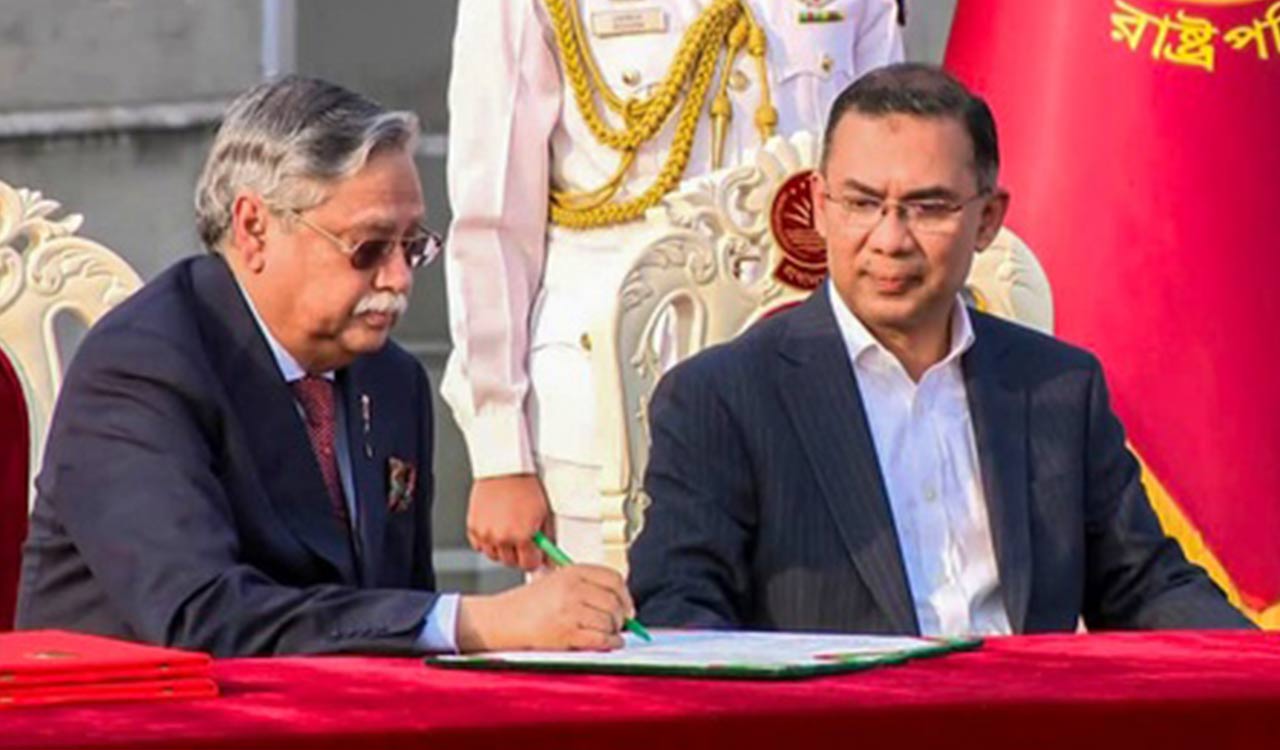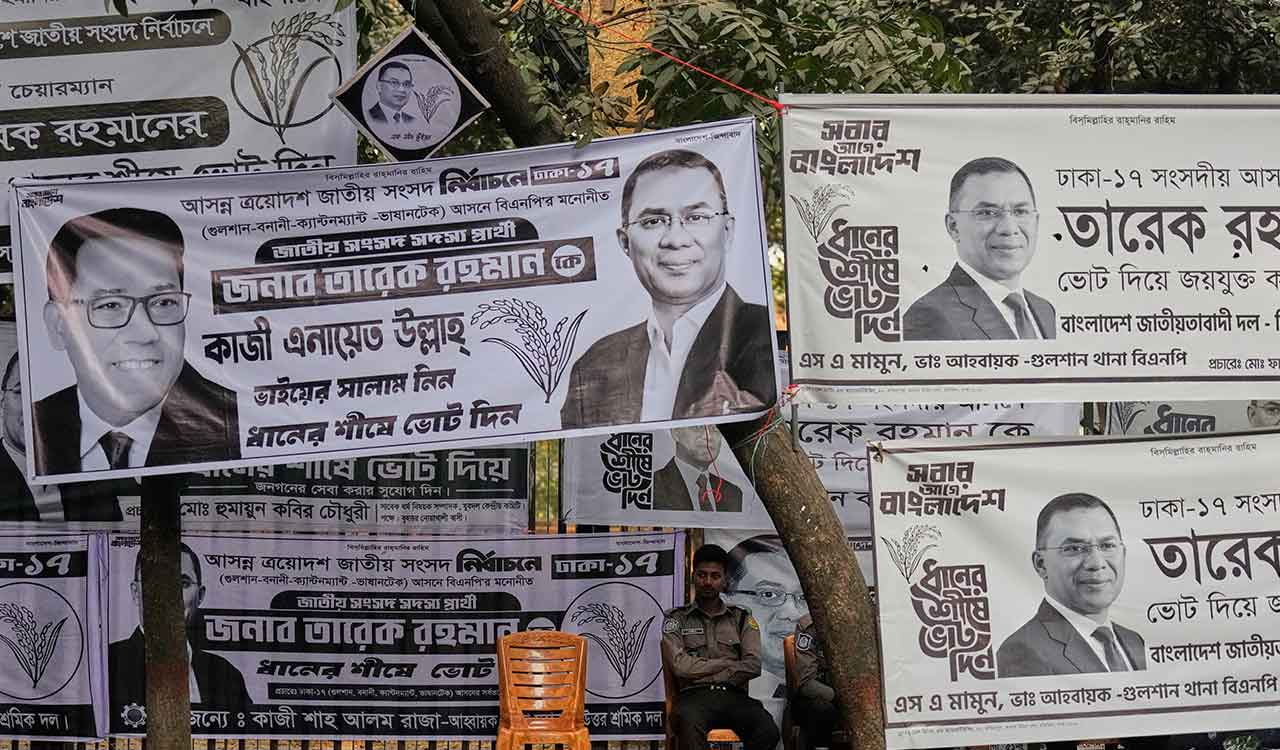Buoyed by farmers’ agitation success, Assam outfits plan to intensify anti-CAA stir
Guwahati: The Centre’s decision to repeal three controversial farm laws following an over-a-year-long agitation by agriculturists has given a fresh impetus to several outfits in Assam to revive the anti-CAA stir. From All Assam Students’ Union (AASU) to Krishak Mukti Sangram Samiti (KMSS), outfits that were at the forefront of the movement in 2019, to […]

Guwahati: The Centre’s decision to repeal three controversial farm laws following an over-a-year-long agitation by agriculturists has given a fresh impetus to several outfits in Assam to revive the anti-CAA stir.
From All Assam Students’ Union (AASU) to Krishak Mukti Sangram Samiti (KMSS), outfits that were at the forefront of the movement in 2019, to Raijor Dal (RD) and Assam Jatiya Parishad (AJP), political outfits formed by leaders of the protests, all are now holding discussions within their organisations and with other groups to intensify the agitation.
Leaders of these outfits said that the agitation against the Citizenship Amendment Act (CAA) lost its “mass nature” due to the COVID-19 pandemic but asserted that the decision to repeal the farm laws has given a push to their stir.
Several outfits in the Northeast oppose the CAA, which seeks to grant citizenship to Hindus, Jains, Christians, Sikhs, Buddhists and Parsis from Bangladesh, Pakistan and Afghanistan who have entered India on or before December 31, 2014, fearing it will cause demographic change in the region that shares long borders with Bangladesh.
AASU chief advisor Samujjal Kumar Bhattacharjya said that the decision to repeal the farm laws was taken because it was “Modi government’s injustice to the people”.
“Now, the Centre has to repeal the CAA as it is against the indigenous people of the Northeast. The AASU and North East Students’ Organisation (NESO) are firm on our opposition to the CAA. It is related to the question of the identity of the people of the region,” Bhattacharjya, also a NESO advisor, told PTI.
He said that the AASU is already in talks with the NESO and 30 other organisations on how to take forward the anti-CAA movement through new strategies.
“The movement never died. We were continuing our resistance at different forums. The COVID-19 pandemic, lockdowns and examinations had led to some slowdown but now, we are discussing ways to intensify the stir,” he said.
Noting that KMSS is firm on its opposition to CAA, its joint secretary Mukut Deka urged people to unite against the Act.
“Everyone should come together against the CAA. Only then we can ensure that it is repealed. The issue of reviving the movement will figure in the November 27 KMSS meeting which will be attended by district as well as central leaders,” he said.
Raijor Dal, formed last year mostly by KMSS leaders, is also rolling up its sleeves to revive the anti-CAA movement.
The party’s working president, Bhasco De Saikia, said, “After the Centre’s decision to repeal the farm laws, there is a feeling among the people of Assam that the anti-CAA agitation did not sustain. They want it to be revived.” “The arrests of 40 KMSS leaders in 2019, including our president Akhil Gogoi, had constrained our participation in the later stages of the stir, while the pandemic and the lockdowns were other deterrents. But we are now holding discussions on how to revive it,” he told PTI.
The AJP, formed after the anti-CAA stir with former AASU leaders steering it, said it will politically fight the Act but support agitation against it.
“We’re a political party and we will fight CAA politically. That is our mandate. Outfits that had earlier led the stir against the Act should revive it. We will support them,” AJP spokesperson Ziaur Rahman said.
“The Centre has not yet framed rules to implement the CAA, which indicates its fear of people’s opposition to the Act. But the government can do it whenever it wants. Hence, to keep the pressure on it, the anti-CAA stir must be revived,” he said.
The anti-CAA stir began as a mass movement led by student and youth organisations in December 2019. But later it was marred by violence, with protestors damaging and burning down government properties, including a railway station, post office and other establishments in different parts of Assam.
This led to a government crackdown, including arrests of leaders of the stir, snapping of internet connectivity and imposition of curfew. Movement leaders claimed that five protesters were killed in police firing but the state government asserted that the number of fatalities was three.
The momentum of the stir slowed down after the AASU, which came into prominence after the arrest of Akhil Gogoi and some of his associates, decided to not block roads, organise demonstrations in fields and completing daily protests before sunset.
The stir almost faded away after the AASU announced a “temporary break” from protests in view of class 10 and 12 board exams in January-February 2020. The agitation literally died following the COVID-19 outbreak and subsequent lockdowns.
The political parties born out of the anti-CAA stir also performed miserably in this year’s assembly elections, with the AJP scoring a duck and only RD supremo Akhil Gogoi winning the Sibsagar seat.
Now you can get handpicked stories from Telangana Today on Telegram everyday. Click the link to subscribe.
Click to follow Telangana Today Facebook page and Twitter .
Related News
-
91 countries and global organisations join New Delhi Declaration on AI Impact
-
Bangladesh’s President alleges conspiracy by Yunus-led interim govt to overthrow him
-
Business leaders make up 70 per cent of BNP-led cabinet in Bangladesh
-
Tarique Rahman elected BNP Parliamentary Party leader, to take oath as Bangladesh PM
-
BC, SC and ST organisations stage protest at DGP office over Kummera village incident
7 hours ago -
‘Irresponsible’: Ponnam hits back at Bandi Sanjay’s comments
8 hours ago -
Poorer sections under stress in Congress rule: MLC Madhusudhan
8 hours ago -
Sports briefs: Sanjana, Hasini win titles at All India Women’s Tennis tournament
8 hours ago -
Konda Surekha suspends four temple staffers in Balkampet
8 hours ago -
Sreenidi Deccan FC take on Diamond Harbour in their IFL opener on Saturday
8 hours ago -
Hemanth Reddy fashions Galaxy Cricket Club trophy win
8 hours ago -
Hockey India’s commitment to environmental sustainability
8 hours ago




